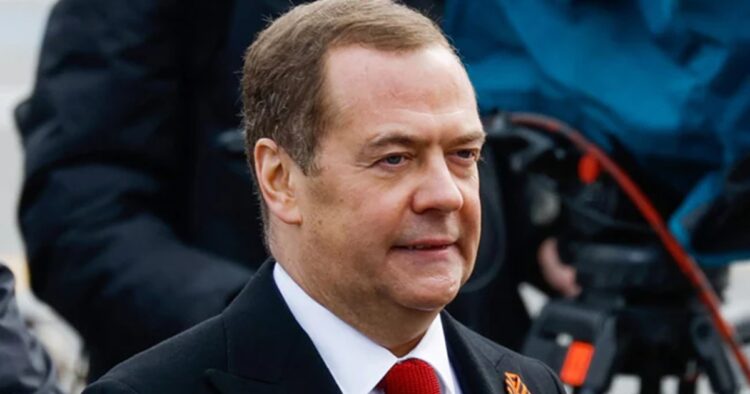Former Russian President Dmitry Medvedev has issued a strong warning to countries in the North Atlantic Treaty Organization (NATO), sparking fears of heightened conflict amid the ongoing Russia-Ukraine crisis.
Medvedev, who now serves as the deputy chairman of Russia’s Security Council and is a close ally of President Vladimir Putin, delivered his message via the social media platform X.
The warning from Medvedev comes at a time of escalating tensions between Russia and NATO, particularly following comments made by former UK Prime Minister David Cameron. Cameron had advocated for a tougher approach against Putin, prompting a stern response from the Russian leader.
A certain Mr. Cameron has called for fighting Putin to the bitter end.
Oh…
I remember the guy quite well. I used to work with him after he became the prime minister: a usual fishy Briton. Back then he was gleefully foolish and looked like a young daredevil reveling in a…— Dmitry Medvedev (@MedvedevRussiaE) May 10, 2024
Medvedev in his statement, directly addressed Cameron’s remarks, cautioning against underestimating Russia’s capabilities. He referenced the Storm Shadow/SCALP-EG cruise missiles, emphasizing that they are not to be taken lightly, as they are handled by skilled personnel from Britain and France.
Medvedev hinted at the possibility of a response beyond Ukraine, with the potential use of specialized ammunition.
Medvedev’s warning underscores the seriousness of the situation, with the Russia-Ukraine conflict already at a critical juncture. Since Russia’s full-scale invasion of Ukraine in February 2022, there have been sporadic threats of nuclear escalation from Russian officials, including President Putin himself.
The exchange between Medvedev and Cameron has drawn attention from the UK government, which reaffirmed its commitment to national security in the face of Russian threats. A government spokesperson highlighted the need to actively deter and defend against all forms of aggression emanating from Russia, while also working closely with allies.
This latest development highlights the deepening divide between Russia and NATO, with both sides engaging in rhetoric and strategic maneuvers that heighten the risk of direct conflict.
As tensions continue to escalate, the broader security architecture of Europe remains in flux, with implications for regional stability and international relations.

















Comments